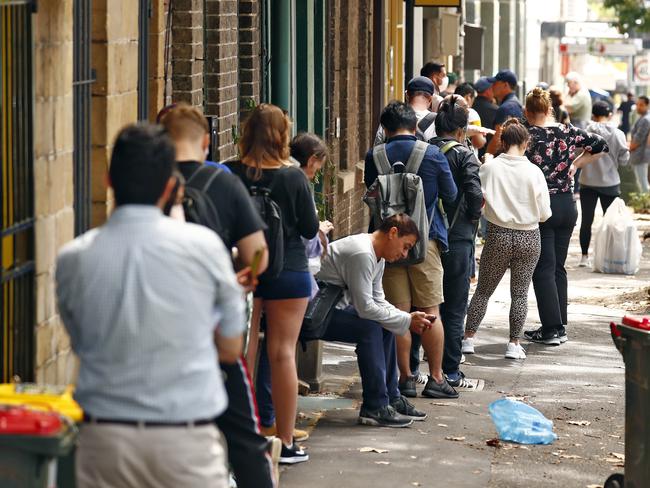SEEK reveals extent of coronavirus’ effect on job market
The extent to which coronavirus has devastated the job market has been laid bare in a new report. But despite the huge losses, some industries are still in demand.

The extent to which coronavirus has devastated the job market has been laid bare in a new report.
SEEK reveals new job ads last week were down 65 per cent compared to the same week in 2019.
Victoria and New South Wales were hardest hit, down 72 per cent and 67 per cent, respectively, followed by Queensland (down 64 per cent), South Australia (60 per cent), Northern Territory (58 per cent), Western Australia (53 per cent), Tasmania (64 per cent) and the ACT (36 per cent).

SEEK Australia and New Zealand managing director Kendra Banks said Australia’s devastating bushfires and a looming economic slowdown had already affected job ad volumes at the beginning of the year – down by as much as 11 per cent – but the latest numbers showed just how much coronavirus had impacted the labour market.
“Two distinct changes are occurring in Australia … there is a mass reduction in the number of jobs available at a national level, whilst simultaneously there is an urgent demand for workers in specific industries,” she said.
“Organisations servicing the essential retail sector, and aspects of the healthcare sector, have an urgent need for skilled and non-skilled workers.
“As businesses pivot to virtual and online delivery of goods and services, and many employees work from home, there is increased demand for cyber security specialists, and technology and product specialists to support these transitions.
“We are also seeing the impact of large organisations like banks, insurance, telecommunications and airlines bringing their call centre and shared services back to Australian shores.”
Still, the SEEK data revealed hiring activity had dropped in every sector.
New job ads in sport and recreation had almost entirely disappeared, last week down 98 per cent year on year.
Advertising, arts and media (down 87 per cent), administration and office support (85 per cent) and hospitality and tourism (84 per cent) were also among the worst-affected sectors.
On the other hand, mining, resources and energy (down 30 per cent), health care and medical (39 per cent) and farming, animals and conservation (40 per cent) fared better.

Although official figures showing actual job losses had not yet been released, Commonwealth Bank head of Australian economics Gareth Aird said there had been plenty of anecdotal reports.
He said the first wave of job losses caused by the coronavirus pandemic had been focused on businesses that had been directly told to shut down or limit their function, and predicted the second wave mid-year.
“Our own internal data shows a huge decline in spending across a range of goods and services – travel, clothing, recreation, personal care, transport,” he said.
“Once you have a contraction in economic activity, especially a deep one like we are expecting, there will be ripple effects through the economy.
“There will be areas in the white collar space impacted.
“The second wave will be there in the June quarter and we’d expect to see job losses in property-related services, marketing, advertising.
“It really remains to be seen to what extent bigger companies will lay off workers.
“We suspect they will be reluctant to do so.
“The question really is how many job losses will be permanent as opposed to how many workers will not be working but kept on the books by their employer because of the (government’s) JobKeeper payment.”

WHERE THE JOBS ARE
SOURCE: SEEK
ESSENTIAL RETAIL SERVICES
Roles across warehouse and distribution, such as shelf stackers, delivery drivers, supply chain managers and warehousing supervisors.
MANUFACTURING
Additional demand for household staples has led to businesses across manufacturing needing more workers so factories can operate at an increased capacity.
MINING AND RESOURCES
Large resource companies are looking for diesel fitters, auto electricians, truck drivers and machine operators.
VIRTUAL WORKING/DIGITISATION
Software development and cyber security workers are in demand.
FAMILY SUPPORT
Nannies and tutors are needed as parents and carers who now need to work from home look for additional support with care and education.
HEALTHCARE
There is demand in nursing, aged care, general medical and surgical, pharmacy, physiotherapy, occupational therapy and rehabilitation, and psychology, counselling and social work sectors.
CUSTOMER SUPPORT
Call centre operators and managers and customer support staff are needed.

